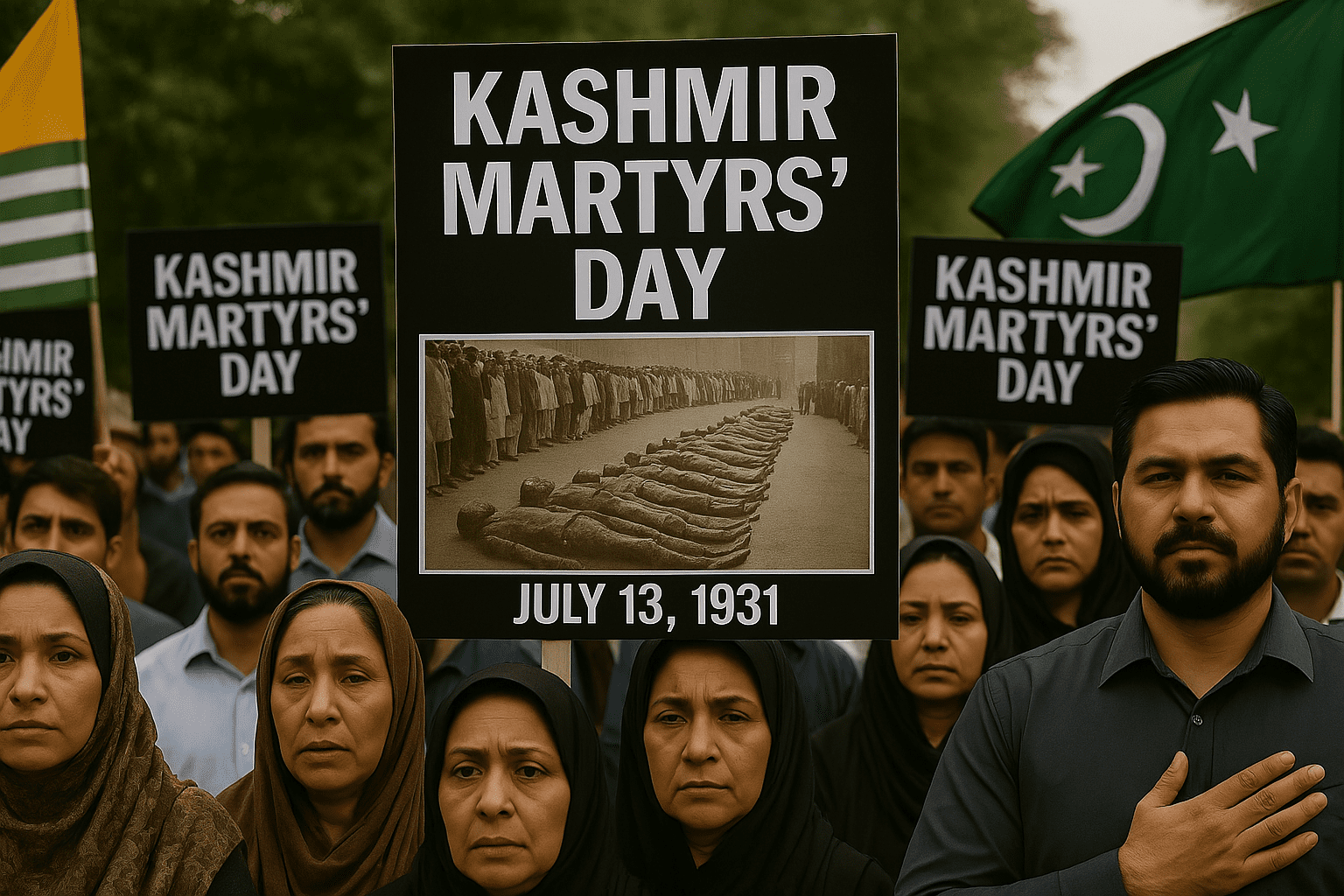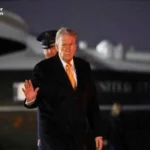Today, Kashmiris around the globe are solemnly observing Kashmir Martyrs’ Day, marking the historic and tragic events of July 13, 1931. It is a day steeped in the memory of immense sacrifice, as 22 unarmed Kashmiris laid down their lives resisting the brutal oppression of the Dogra regime. Their martyrdom, which occurred outside the Central Jail in Srinagar, is remembered as a defining moment in the Kashmiri struggle for dignity, justice, and freedom from tyranny. This day is annually observed as a symbol of the Kashmiri people’s long-standing resistance and their undying spirit in the face of oppression.
The Historical Significance of July 13, 1931
The events of July 13, 1931, hold deep historical significance for the people of Jammu and Kashmir. On that day, thousands of Kashmiris had gathered outside Srinagar’s Central Jail, where Abdul Qadeer Khan, a freedom movement supporter, was being tried for inciting people against the oppressive Dogra rule. As the time for the Zuhr prayer approached, a young man stood up to call the Adhan (Islamic call to prayer). The Dogra forces opened fire, killing him. One by one, 21 others took his place and were also shot dead in the same manner. The massacre shocked the region and sparked a powerful and sustained movement against the autocratic rule of the Dogra monarchy.
This brutal event galvanized a collective consciousness among Kashmiris and gave birth to a broader political awakening that eventually evolved into a consistent demand for their rights. The courage and sacrifice of the 22 martyrs of 1931 continue to inspire generations of Kashmiris in their ongoing struggle for justice and self-determination.
Prime Minister Shehbaz Sharif’s Statement
On this sombre occasion, Pakistan’s Prime Minister Shehbaz Sharif paid homage to the martyrs, stating that Kashmir Martyrs’ Day is a solemn reminder of the resilience, perseverance, and unbreakable determination of the Kashmiri Muslims. He underscored the significance of remembering those who stood up against tyranny and laid down their lives for a noble cause. The Prime Minister reiterated that Pakistan remains firmly committed to supporting the people of Jammu and Kashmir, not only politically and diplomatically, but also morally.
He emphasized that Pakistan would continue to be the voice of the oppressed Kashmiris at international forums, exposing the continued human rights violations being carried out in the Indian-administered Jammu and Kashmir. Shehbaz Sharif’s message highlighted that the spirit of 1931 lives on in today’s Kashmiris who continue to resist oppression and aspire for their right to self-determination as enshrined in numerous United Nations resolutions.
Bilawal Bhutto Zardari Calls for Resolution in Line with Kashmiri Aspirations
In his statement marking the day, Pakistan People’s Party (PPP) Chairman Bilawal Bhutto Zardari also paid tribute to the fallen heroes of July 13, 1931. He reiterated the long-standing position of his party that sustainable peace in South Asia hinges on the resolution of the Kashmir dispute. According to Bilawal, lasting peace in the region is only achievable when the Kashmir issue is resolved in accordance with the aspirations of the Kashmiri people and in line with international law.
He called upon the international community to play a more proactive role in addressing the decades-old dispute and to hold India accountable for its continuous human rights abuses in the region. Bilawal highlighted that the people of Kashmir have been living under a shadow of fear and violence for decades, and it is the world’s moral responsibility to respond to their cries for justice.
Global Observance and Expressions of Solidarity
Every year on July 13, Kashmiris and their supporters organize seminars, rallies, and memorial services around the world to mark Kashmir Martyrs’ Day. From the streets of Muzaffarabad to the diaspora communities in the United Kingdom, Canada, the Middle East, and beyond, this day is commemorated with great reverence. Flags are flown at half-mast, special prayers are offered, and discussions are held to spread awareness about the sacrifices of 1931 and the ongoing plight of the Kashmiri people.
Social media platforms have also become a powerful avenue for global Kashmiris to express solidarity, share historical facts, and call for international intervention. Hashtags such as #KashmirMartyrsDay and #13July1931 trend worldwide, bringing visibility to a struggle that often goes unheard in mainstream global discourse.
A Legacy of Resistance and Hope
The spirit of the 22 martyrs of 1931 continues to live on in the collective memory of Kashmiris. It is a powerful legacy that underscores the right of people to resist oppression and demand their freedoms. Kashmir Martyrs’ Day is not just about mourning the dead; it is about reaffirming a commitment to a just cause that refuses to be silenced, no matter how long or difficult the path may be.
Today, as Kashmiris around the world remember the sacrifices of July 13, they do so with both grief and determination. They honour the past but also look toward a future where their sacrifices will not be in vain — a future that promises dignity, peace, and self-determination.







